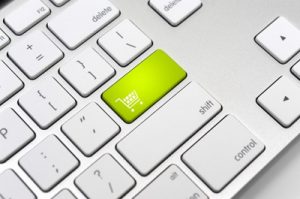The ARA Consumer Research Advisory Committee has identified ten research priorities or themes for 2021 (note that these priorities are not listed in order of importance):
- The ‘gig’ economy and the future of work in retail
- Moving from customer loyalty to advocacy and brand ambassadorship
- Post-COVID consumer discretionary spending intentions
- Data and digital trust
- CSR and purchase behaviour
- Social value of retail work
- The future of retail jobs and the role of retail
- Shifts in spending across channels
- Rise of smart retail technology
- The growth in retail regionalisation
Should your research idea fall outside these ten research priorities you may be able to pitch a proposal to the Committee.
 The ‘gig’ economy and the future of work in retail
The ‘gig’ economy and the future of work in retail
The proliferation of the smartphone has reshaped the commercial landscape, providing consumers new ways to access the retail marketplace and workers greater flexibility. Flagship on-demand companies such as Uber, Fiverr and Freelancer, have garnered significant media attention for their market success. This priority seeks to understanding how retailers could leverage the ‘gig’ economy to shape the future of work in retail.
- Understanding workers’ willingness to participate in the gig economy.
- Understanding and forecasting the complex legal and legislative impacts that may emerge as the gig economy grows.
- Determining the benefits and costs of a gig economy for both workers and retailers, in terms of the ease of finding employment, greater flexibility to choose jobs and hours, and award challenges.
- Can the gig economy facilitate ‘bridge employment’ (e.g., temporary employment between career jobs or between full-time work and retirement) or provide opportunities to generate income when circumstances do not accommodate traditional full-time, full-year employment.
Moving customers from ‘loyalty’ to ‘advocacy’
The success of social media group, Kmart Mums, with over 380,000 members or Aldi Mums, with almost 200,000 members, signals a shift from simply behavioural loyalty to brand advocacy, and even brand ambassadorship. This priority seeks to understanding how retail brands can shift customers from loyalty to advocacy.
- Identifying the practical steps to brand advocacy.
- Determining the psychological differences from attitudinally loyal customers and brand ambassadors.
- Developing strategies for retailers to develop brand ambassadors.
- Understanding the benefits and challenges in creating brand advocates
 Post-COVID consumer discretionary spending intentions
Post-COVID consumer discretionary spending intentions
Despite strong sales results being realised across the sector in 2020, the questions raised relate to the intentions of Australian shoppers’ continuation of discretionary spending.
- How has the Australian consumers’ discretionary spending changed in the past 12 months?
- Are consumers spending in areas, categories, and sectors they previously did not?
- Discretionary spending habits – by socioeconomic demographic segments. What are their intentions (as the COVID-19 vaccine rolls out), do shoppers intend to consume and spend at the same rate? In which categories?
- Do they intend to change their spending as borders open and travel restrictions are relaxed?
- Risks and opportunities for retailers?
 Data and digital trust
Data and digital trust
Since March 2020 (COVID-19), consumers have very quickly adapted to giving over data and personal information – from scanning QR codes upon entry and enabling tracing/tracing technology. Yet, historically, consumers are sensitive to providing personal data to third parties and retailers.
- Relative to capturing customer data, what attracts/dissuades a customer from sharing data?
- How can retailers make this (providing data) simpler for customers?
- How might data capture/privacy legalities impact on any changes to forms of capture?
- As we move out of this period of COVID, will customers continue to share information once we move back to normal?
- What are the barriers?
- Do consumer segments differ in the level of ‘comfort’ relating to data sharing?
- What motivates consumers to provide personal information to third parties, such as retailers?
- What are the indicators of ‘trust’?
- Would consumers accept, for example, facial recognition payment technology?
- Are consumers still concerned with passive forms of data collection?
- Consent fatigue and whether consumer trust is actually increased by having to consent multiple times to online advertising.
- What is the consumer sentiment about the use of personal data for advertising – do they want to be targeted?
- Differences between consumer trust as it relates to online fraud or safety issues, compared to simply being shown targeted ads.
- How can a customized retail experience be used to actually create a trust relationship?
- How retail consumers rank the importance of being able to access their data, request its deletion or export it from one retailer to another?
 Corporate Social Responsibility (CSR) and purchase behaviour
Corporate Social Responsibility (CSR) and purchase behaviour
Retailers invest heavily in developing and communicating their CSR strategies to their market. However:
- Does a retailers’ CSR strategy influence purchase behavioural intentions?
- Do consumers really care about CSR strategies or objectives?
- Will consumers be willing to shop with a retailer, who promotes positive CSR messages?
- Will customers pay more or expect products to be the same price, where CSR initiatives are adopted?
 Social value of retail work
Social value of retail work
Retailers regularly work with bespoke recruitment agencies, such as Epic, to assist people with disabilities find meaningful employment. Employing team members with special needs, provides benefits to such employees, the business, incumbent employees and broadly, the community.
What is the value (direct or indirect) of employing team members with disabilities – for them, the organisation, incumbent team members and the community?
 The future of retail jobs and the role of retail
The future of retail jobs and the role of retail
How do retailers attract the best talent and be considered an ‘employer of choice’? How do retailers and associations best position retail as a ‘career’ and not just a ‘job’?
Greater regulation in the last ten years in Australia – how does this (i.e., workplace roles, WHS) affect the future hiring intentions of retailers? For example, potential changes to legislation that defines what ‘casual’ employment is?
What is the value of retail work and retailer presence in communities today? For example, what is the positive impact of retail presence in a community, i.e., pubs regularly attract negative exposure (gambling, excessive drinking, violence) but equally, these are place of community engagement and social connection.
 Shifts in spending across channels
Shifts in spending across channels
As the shift to online shopping continues, what are the intentions of consumers to engage and spend across multiple channels? Has COVID directed consumers to trial and adopt new channels – moving from in-store shopping to online, or a combination?
What categories are consumers willing/unwilling to purchase online?
 Rise of smart retail technology
Rise of smart retail technology
From price checking points, self-service checkouts, automated fulfilment and possibly service robots, to what extent are consumers willing to adopt and interact with emergent retail technologies? What are the drivers and barriers to adoption?
What are the negative perceptions of these technologies – i.e., will robots and technology take the jobs? What do consumers see as the value of these technologies?
 The growth in retail regionalisation
The growth in retail regionalisation
COVID has accelerated working from home, zoom meetings and tele-commuting. It has also encouraged many to leave cities for an ‘e-change’. House and residential rental pricing has increased in regional and coastal towns. Regional and rural area have been mostly isolated from the impacts of CBD lockdowns and are now becoming vibrant areas. There is a growing shift to the regions and a positive impact on retail, as regional centres grow and thrive.
- Why do people move?
- What are the trends?
- Will this change continue/ decrease/increase?
- What do retailers need to understand about this population shift?
- What challenges might regional/rural retail business face as populations grow, i.e., logistics, skills, lack of an available workforce?
- Socially and economically, what will be the impact of regionalism for retailers?